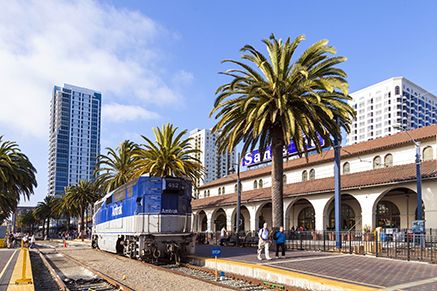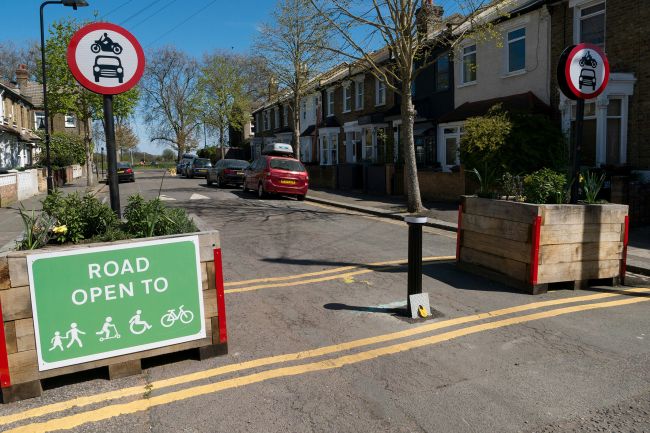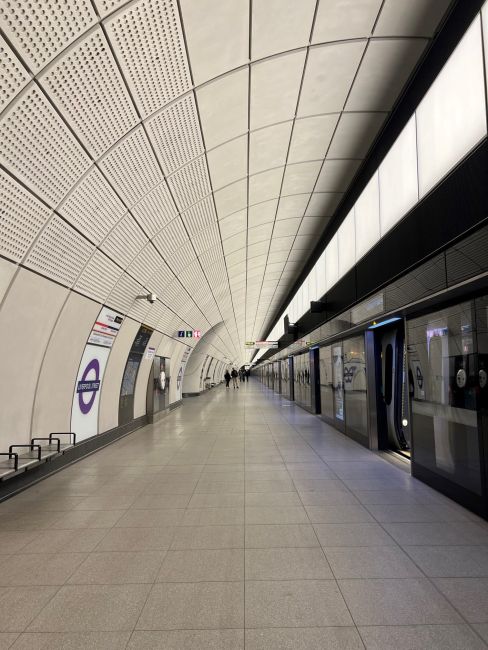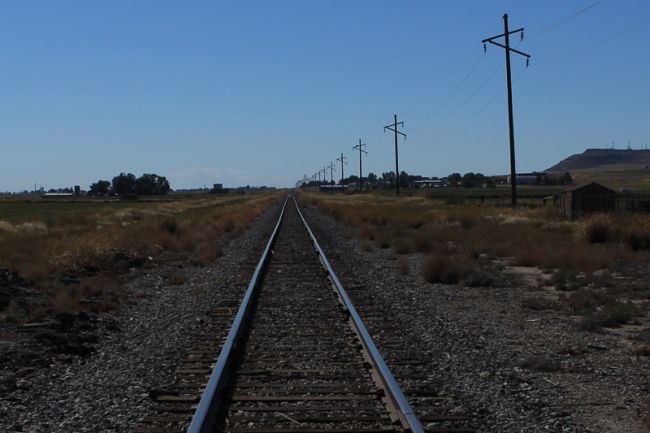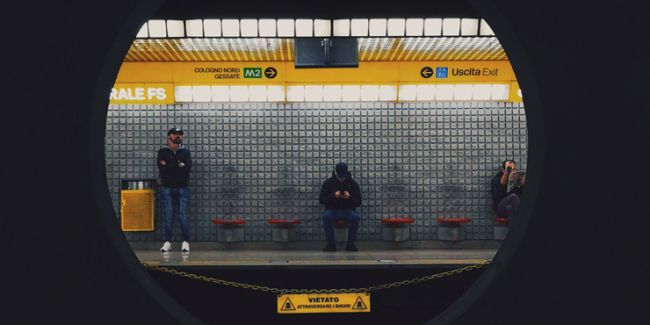Amtrak’s on-time performance
If reliability is everything for today’s travelers, how much does on-time performance (OTP) affect ridership and revenue on US railroads?
Roughly three-quarters of Amtrak’s service-miles are operated on track that is owned and used by another rail operator, most typically a freight rail company. Federal law requires that passenger trains should be given priority on shared track, but the host railroad is responsible for train dispatching and questions of priority frequently arise. This can result in passenger train arrivals that are late compared to schedule. There are of course other reasons for delays, such as failures of aging infrastructure and equipment and weather.
In addition to tracking minutes of delay to each train at each station on a route, Amtrak reports schedule adherence via measure OTP. Whether a train is considered to arrive late depends on the length of the route.
The OTP track record is known to influence travelers’ perceptions of the rail mode because fluctuations in it can be seen reflected in Amtrak’s ridership and revenue.
In 2007, Steer Davies Gleave experts carried out a study for the United States Department of Transport (USDOT) Office of Inspector General to investigate the extent of the effect of poor OTP on Amtrak’s ridership and revenue. The study used several years’ detailed train operations and ridership data for each route in the Amtrak system outside of the Northeast Corridor (where Amtrak owns much of the track and performs dispatching on some state-owned routes). Applying powerful statistical methods to disentangle the effects of OTP variations from the many other route-specific factors that were also impacting ridership during the same period, SDG experts were able to quantify the cost to Amtrak of OTP below target levels. As an example, it was found that if Amtrak had achieved an OTP of 85% in 2006 (off of the Northeast Corridor), ticket revenues would have been around $110 million higher. OTP improvements also tend to reduce train operating costs as a result of lower overtime and fuel consumption.
The Passenger Rail Investment and Improvement Act (PRIIA), passed by Congress in 2008, provided for financial penalties when railroads give priority to freight trains over passenger trains and defined metrics and standards for measuring OTP. The result was a steady improvement over time in Amtrak’s OTP up to 2012, which was its best year ever. However, this provision of PRIIA was challenged in court by the Association of American Railroads and in July 2013 the US Court of Appeals in Washington ruled it unconstitutional. Amtrak has appealed this decision and the Supreme Court has recently agreed to hear the case. Meanwhile, however, the enforcement regime has been eliminated and since that time there has been an erosion of Amtrak’s OTP, with roughly two-thirds of the delays attributed by Amtrak to interference from freight trains.
Amtrak has commissioned SDG to reanalyze the effects of OTP on passenger ridership and revenue. The recent developments are a natural experiment that will provide relevant data for this analysis and we look forward to gathering the results.

